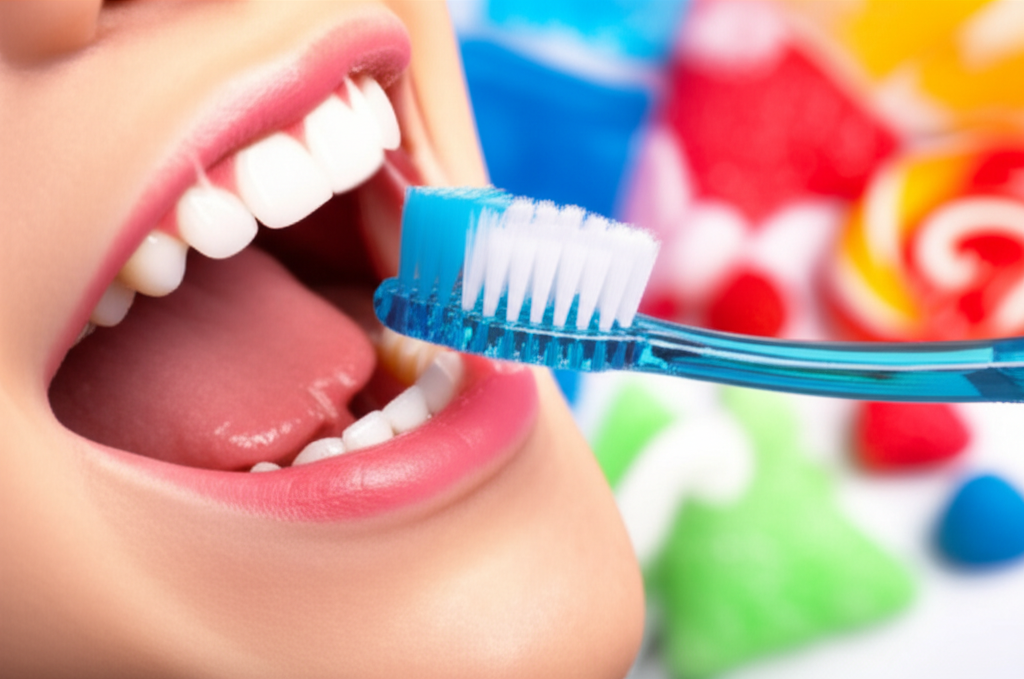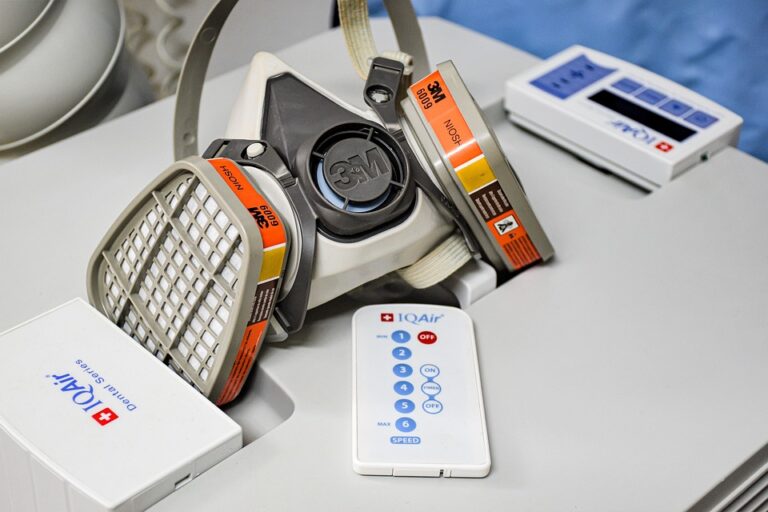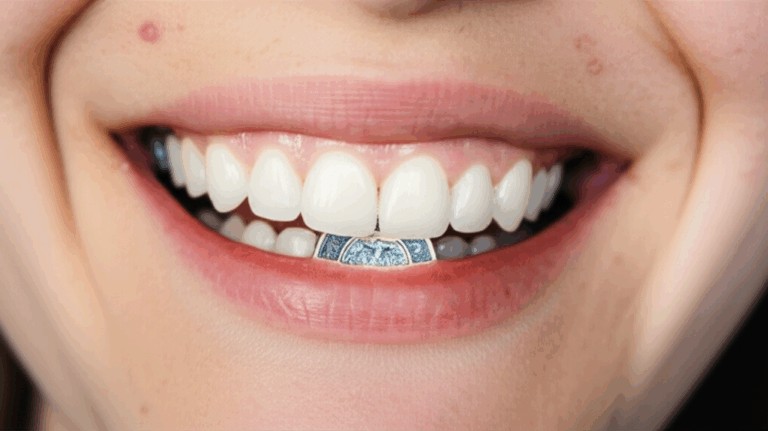
What Causes Dental Problems? A Complete Guide to Healthy Teeth & Gums
If you’re anything like me, you’ve probably wondered why dental problems seem to pop up, even when you think you’re doing all you can. Over time, I’ve learned a lot about what causes these issues—both from research and from my own mistakes. Here, I’ll share what I’ve found—what’s really going on with your teeth and gums, and what you can do every day to keep them in good shape.
Let’s get started and figure this out together.
Table of Contents
- The Basics: Not Cleaning Your Teeth Well
- How What You Eat Affects Your Teeth
- Everyday Habits That Can Hurt Your Mouth
- Health Problems and Medicines That Affect Your Teeth
- Things You’re Born With and Tooth Shape
- Accidents and Injuries
- Common Dental Problems from These Causes
- How to Stop Dental Problems: What You Should Do
- When to Visit the Dentist
- Conclusion: Taking Charge of Your Oral Health
The Basics: Not Cleaning Your Teeth Well
Thinking back, most of my own teeth problems came from simple, everyday habits—the kind you don’t think about much until things go wrong. Let’s look at where a lot of trouble starts.
Plaque and Tartar Buildup
I can’t count how many times my dentist pointed out spots I missed. Plaque is a sticky layer of germs that forms on your teeth. If you don’t brush it off, these germs use sugars from your food and make acids that attack your teeth. If you let it sit, plaque turns hard and becomes tartar. Tartar is much harder to get rid of—you need a dentist to take care of it. Tartar creates lots of problems, like sore gums and cavities.
Poor Brushing and Flossing Habits
I used to think brushing for a minute was good enough. But how you brush really matters. If you ignore the gum line or don’t floss at all, food and germs stay stuck between your teeth. Before I started flossing every day, I had no idea how much stuff was left behind. This led to sore gums, bad breath, and cavities—especially between my teeth.
Not Going to the Dentist Enough
Years ago, I would put off dental visits. Sometimes I was nervous, and sometimes I just didn’t feel like going. That just made my problems worse. Going to the dentist catches issues early and gets rid of tartar you can’t clean at home. Skipping visits let my small problems get bigger—and more expensive—to fix. Trust me, it’s much easier to prevent than to treat dental problems.
How What You Eat Affects Your Teeth
If you think your craving for sweets doesn’t really hurt your teeth, think again. What you eat and drink matters—a lot.
Sugary Foods and Drinks
When I was younger, I thought having soda or candy now and then wasn’t a big deal. I was wrong—sugar is the main reason people get cavities. Germs in your mouth love sugar. After you eat sweets, those germs make acids that break down your teeth. Some of my worst cavities came right after a period of eating lots of sweet snacks.
Acidic Foods and Drinks
If you drink soda all day or eat a lot of oranges, you might notice your teeth start to hurt. Sour drinks and foods like citrus can wear away the top layer of your teeth (enamel)—I learned the hard way during my orange juice kick. When enamel wears away, teeth become sensitive and more likely to get cavities, and enamel doesn’t grow back.
Snacking All Day
I used to snack all day without thinking about it. Every snack—even healthy ones—means another acid attack on your teeth. Your mouth needs time to recover. When I started taking breaks between eating, my teeth got better.
Not Enough Good Stuff in Your Diet
After trying a strict diet, I got mouth sores and bleeding gums. My dentist told me that not getting enough vitamins—especially vitamin C and calcium—can make gums weak and teeth less strong. Your teeth need healthy foods as much as they need brushing and flossing.
Everyday Habits That Can Hurt Your Mouth
Sometimes, small things you do every day make a big difference.
Using Tobacco (Smoking or Chewing)
I saw family members struggle with tooth problems from smoking. They had stains, bad breath, and gums that pulled away from their teeth. Smoking makes gum disease, losing teeth, and mouth cancer much more likely. Quitting is one of the best things you can do for your mouth.
Drinking Alcohol
For a while, I used to have a drink often. I didn’t realize alcohol dries out your mouth and makes acid problems worse. With less spit to protect your teeth, it’s easier to get cavities and gum disease. Drinking and smoking together is even more risky.
Grinding or Clenching Teeth
During a stressful time, I started grinding my teeth at night. This led to broken and worn-down teeth, plus sore jaws. My dentist said lots of people do this, especially when stressed. I use a night guard now, but at first, I didn’t know my headaches were from grinding my teeth.
Breathing Through Your Mouth
My dentist told me I was breathing through my mouth at night because my nose was stuffy. I thought it was no big deal, but mouth breathing dries out your mouth and leads to more tooth decay. Keeping your nose clear can prevent lots of problems.
Health Problems and Medicines That Affect Your Teeth
It surprised me how much your overall health connects to your teeth.
Diabetes
A close family member had diabetes, and I saw how it made their gums get infected easier and heal slower. Gum infections can make blood sugar even harder to control. Keeping diabetes in check helps your mouth, too.
Dry Mouth
I started a new allergy pill, and my mouth got really dry. Spit usually washes away food and helps fight germs. Without it, I got more cavities—even though my brushing habits didn’t change. Lots of medicines can dry your mouth, and it’s important to talk with your doctor about this.
Autoimmune Diseases
A friend with an autoimmune problem had mouth sores and bleeding gums all the time. Some diseases make your body attack your own mouth. If you have something like this, take extra care with your dental routine.
Some Medicines
Some medicines can make your gums puffy or bleed, making it hard to brush and floss well. If your gums are sore or swollen, ask your doctor or dentist—it might be a side effect.
Changes in Hormones (Pregnancy, Menopause)
When I was pregnant, my gums bled more easily and were sore. Hormone changes can make your gums more likely to get infected. Dental care matters even more during times like pregnancy and menopause.
Eating Disorders
I volunteered at a clinic where many people struggled with eating disorders. Throwing up a lot caused bad acid damage and gum problems. Getting dental help early is really important.
Things You’re Born With and Tooth Shape
Sometimes you can do everything right and still have problems—because of your genes or how your teeth are shaped.
Family History
For years, I blamed myself for my teeth problems, but I learned that if your family has weak teeth or gum disease, you might too. If your parents had lots of cavities, be extra careful yourself.
Crooked or Crowded Teeth
My bottom teeth grew in too close together, making it hard to clean all areas. Crooked teeth trap food and plaque, so if your teeth are crowded, brush and floss often and see your dentist for cleanings.
Deep Grooves in Teeth
Some chewing teeth have deep lines or “grooves” that collect food and germs. Some of my friends got dental sealants as kids to cover these, but I didn’t—and I had more cavities on my molars.
Accidents and Injuries
Not all dental problems are your fault—sometimes, things just happen.
Broken, Cracked, or Knocked-Out Teeth
I once fell and hit my tooth on the sidewalk—something I hope never happens again. Accidents like that can break or knock out a tooth. Even small cracks are a way in for germs.
Sports Injuries
Anyone who plays contact sports knows the risk. I’ve seen friends lose teeth because they didn’t wear a mouthguard. Now, I always use a guard for sports or nighttime grinding.
Common Dental Problems from These Causes
Here’s a rundown of what can go wrong if you don’t take care of your teeth:
Cavities
Most people, including me, have had at least one cavity. Cavities happen when germs make acid and eat away your enamel. It starts slow and sneaky, so if you feel pain, the damage might already be pretty bad.
Gum Disease
If your gums are red, swollen, or bleed, that’s usually the first step of gum disease (gingivitis). Left untreated, it can lead to losing teeth. I ignored bleeding gums for months and ended up with early gum disease. Don’t make my mistake.
Tooth Sensitivity
Sharp pain when you eat or drink something hot or cold? That’s usually from worn enamel, gums pulling back, or tiny cracks. Toothpaste for sensitive teeth helps, but fixing the cause works best.
Bad Breath
Nothing’s more embarrassing than bad breath. For me, the cause was almost always dirty teeth, trapped food, or gum disease. Mouthwash is only a short fix—real relief comes from brushing, flossing, and cleanings.
Mouth Infections
Once, a cavity I ignored turned into a very painful infection under the tooth (an abscess). This is serious and can be dangerous. Never ignore a toothache.
How to Stop Dental Problems: What You Should Do
I’ve made plenty of mistakes but learned from them. Here’s what really helps:
Keep Your Mouth Clean
Brush morning and night with a toothpaste with fluoride. Floss every day. Brush with gentle circles—don’t scrub too hard. Floss gets what your brush can’t.
Eat Smart
Cut down on sugar and sour foods and drinks. Drink water often, chew sugar-free gum, and eat plenty of healthy stuff with vitamins and minerals. Watch out for frequent snacking and sodas.
See the Dentist Regularly
I’m not afraid of the dentist anymore. Visiting every six months for checkups and cleanings has saved me a lot of pain and money. Catch problems early, and they’ll never get big.
Manage Health Problems
If you have diabetes or another long-term health problem, keep it under control. Tell your dentist about any new medicines or health changes—it makes a big difference for your teeth.
Stop Bad Habits
If you smoke, work on quitting. Cut back on alcohol. If you grind your teeth, get a special night guard from your dentist. Doing this is worth every bit of effort.
When to Visit the Dentist
Don’t be like me and wait too long. Call your dentist if:
- Your teeth or jaw hurt for more than a day or two.
- Your gums bleed or look puffy.
- You keep getting bad breath.
- Your teeth feel loose or your bite feels different.
Your mouth shouldn’t make you miserable or embarrassed. A dentist can help fix things and keep you smiling.
Conclusion: Taking Charge of Your Oral Health
Every person’s teeth story is different, but the basics are the same. I’ve learned the hard way that good habits, smart choices, and regular dental visits make all the difference. Taking care of your mouth is simple—just clean your teeth every day, eat well, and handle problems early. It pays off with every smile you give.
If you want to learn more about dental health or get extra tips, check out some trusted websites or talk to your dentist. New materials and technologies are always coming out, and places like dental labs are making big advances.
Take it from me—looking after your mouth is always worth it.








